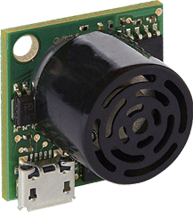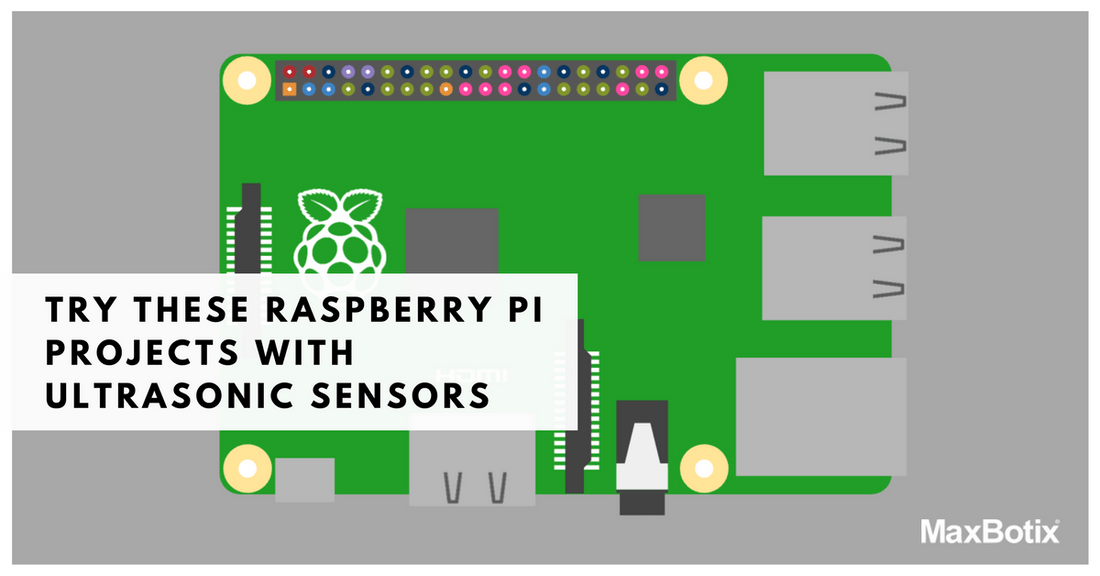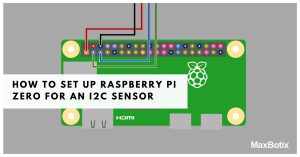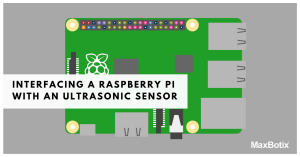Easy Raspberry Pi Project Ideas
We've put together some of the best and worthwhile Raspberry Pi projects ideas just for you.
At this point, the Raspberry Pi is a modern legend. This series of tiny, low-powered computers provides an inexpensive and relatively easy base for electronics projects.
A Raspberry Pi is a brilliant tiny computer that you can power off of a micro USB cable. The most recent model has WiFi, an ethernet port, 4 USB ports, and an HDMI port. There's also a micro SD card slot, which is where the "hard drive" goes. The $35 Raspberry Pi is one of the best tools to create inexpensive machines, robots, wireless appliances and other forms of useful gadgetry and even as a programming toy for children.
That's why we've created a list of interesting Raspberry Pi projects to get started with, along with some complex projects for advanced users.
Get Easy-to-Use Ultrasonic Sensors for Your Raspberry Pi Projects
Check out our exclusive selection of low-cost Raspberry Pi compatible ultrasonic sensors for a wide variety of applications, perfect for both new Raspberry Pi projects and advanced setups. Click here to see the full list.

XL-MaxSonar-EZProduct Line
XL-MaxSonar-EZ ultrasonic rangefinders offer 1cm resolution, 3.3-5.5VDC operation, high power output, noise rejection, and automatic calibration. The output options for this ultrasonic sensor line are pulse-width, analog voltage, and asynchronous RS232 serial.

HRLV-MaxSonar-EZProduct Line
Features of the weather resistant MB7092, XL-MaxSonar-WRMA1, include small target rejection providing range information to the target with the largest acoustic return, a stability filter, centimeter resolution, range information from 20cm to 765cm, a 10Hz read rate, and various output options: analog envelope, analog voltage, and RS232 serial.

HRUSB-MaxSonar-EZProduct Line
HRUSB-MaxSonar-EZ ultrasonic rangefinders offer 1mm resolution, an easy to use Micro-B USB connection, temperature compensation, automatic calibration, high accuracy, and stable operation in multi-sensor environments. The output of this sensor line will be sent over USB.

LV-ProxSonar-EZProduct Line
LV-ProxSonar-EZ ultrasonic rangefinders offer stable proximity information in multi-sensor environments, 1-inch resolution, and 2.5-5.5VDC operation. The output options for this ultrasonic sensor line are logic level output and asynchronous RS232 serial.

MB1014LV-ProxSonar-EZ1
Features of the MB1014, ProxSonar-EZ1, include one-inch resolution, both proximity and range information for the nearest detectable target, and various output options: high/low logic level and RS232 serial.

MB1024LV-ProxSonar-EZ2
Features of the MB1024, ProxSonar-EZ2, include one-inch resolution, both proximity and range information for the nearest detectable target, and various output options: high/low logic level and RS232 serial.
There are so many fun projects you can create with your Raspberry Pi that you might be wondering where to begin, especially if you're new to the controller, coding, and Linux. (Linus is a free open source operating system that powers the Raspberry Pi.) That's why we've put together the following collection of Raspberry Pi projects:
- USB is the easiest to use range sensor for the Raspberry Pi, including Raspberry Pi.
- Setting up the Raspberry Pi Zero for an I2C Sensor.
- How to use an ultrasonic sensor with the serial port on a Raspberry Pi, Zero I, II and III.
- Interfacing a Raspberry Pi with an ultrasonic sensor.
These projects will help you not only get started with the Raspberry Pi, but also inspire you to build fun projects, such as a home media server or even your own robot. You may also want to try the following USB sensors for one of the projects that will give you extraordinary results.

MB1414USB-ProxSonar-EZ1
Features of the MB1414, USB-ProxSonar-EZ1, include one-inch resolution, both proximity and range information for the nearest detectable target, and serial data over an easy to use USB interface.

MB1424USB-ProxSonar-EZ2
Features of the MB1424, USB-ProxSonar-EZ2, include one-inch resolution, both proximity and range information for the nearest detectable target, and serial data over an easy to use USB interface.

MB1434USB-ProxSonar-EZ3
Features of the MB1434, USB-ProxSonar-EZ3, include one-inch resolution, both proximity and range information for the nearest detectable target, and serial data over an easy to use USB interface.
5 Fun, Easy Raspberry Pi Beginner Projects You Can Try With a $35 Raspberry Pi
New to Raspberry Pi?
If you're new to Raspberry Pi, check out the following helpful resources that will help you understand and learn more about the controller.
Connect a Raspberry Pi Zero with a USB Ultrasonic Sensor
Written By: Cody Carlson | DatePosted: 10-28-2016
MaxBotix USB ultrasonic sensors make your Raspberry Pi Projects even easier. This tutorial teaches you how to connect a Raspberry Pi Zero, as well as the other members of R Pi family, with an ultrasonic sensor to read data off the USB port. You may want to check out our tutorial on Raspberry Pi TTL to connect your Raspberry Pi Zero over the serial port and how to use an ultrasonic sensor with a Raspberry Pi.
Setting up the Raspberry Pi Zero for an I2C Sensor
Written By: Cody Carlson | DatePosted: 11-18-2016
This tutorial demonstrates how to set up an I2C circuit using a Raspberry Pi product such as the classic Raspberry Pi, Raspberry Pi Zero, Raspberry Pi 2, or Raspberry Pi 3 and an I2C MaxSonar. The article was written and tested on an R Pi with the September 2016 version of the Raspbian Jessie with PIXEL OS.
Interfacing a Raspberry Pi with an Ultrasonic Sensor
Written By: Cody Carlson | DatePosted: 11-18-2016
Do you enjoy or love testing new Raspberry Pi Projects? Maxbotix has put together a tutorial that teaches you how to interface a Raspberry Pi with an ultrasonic sensor to read TTL serial data. You may also check out our tutorial on Using an ultrasonic sensor with a Raspberry Pi and how to use a USB ultrasonic sensor for a Raspberry Pi.
Support Limitations MaxBotix provides code examples as a reference starting place for our customer. At the time of development, the code examples worked for the given platform and setup. Due to the fast changing nature of these platforms (Hardware, OS and peripheral devises), we are unable to keep up with the changes in these code examples. Additionally, every system setup is different which further increases the complexity of the system and troubleshooting. Support for code is very limited regarding our free sensor support system. We recommend using the platforms forums for support to help troubleshoot the code issue as these are the most up to date regarding information. We do offer paid engineering support for code if this is something you may be interested in. Please contact us if you would like to look into this.Please see the Raspberry Pi forum for more support at this link: https://www.raspberrypi.org/forums/






